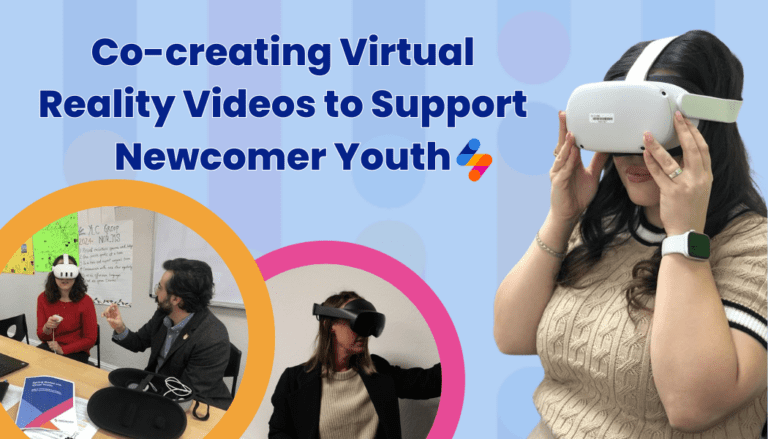Switchboard Blog
Switchboard’s blog posts offer a wide range of insights on the newcomer experience, including practical tips for navigating the resettlement process, resource lists tailored to community needs, case studies about relevant programs, engaging stories of successful integration, and more.
FEATURED BLOG

Co-creating Virtual Reality Videos to Support Newcomer Youth
This blog post describes a training and technical assistance (TTA) experience with the International Rescue Committee’s (IRC) Sacramento office, in which the Emerging Technology team
Refine Search
This blog post describes a training and technical assistance (TTA) experience with the International Rescue Committee’s (IRC) Sacramento office, in which the Emerging Technology team at Switchboard collaborated with service providers, a local high school, and Afghan newcomer youth. Using design thinking and the co-creative process, they filmed a 360 immersive video to support the […]
There is strong evidence that therapeutic strategies grounded in cognitive behavioral therapy (CBT) reduce mental health symptoms among unaccompanied refugee minors (URMs). ▪ Three systematic reviews, three scoping reviews, and five suggestive studies highlight the reduction of post-traumatic stress disorder (PTSD) and trauma-related symptoms and other forms of mental health distress when interventions are grounded […]
Switchboard’s Emerging Technology team provides training and technical assistance (TTA) on the integration of emerging technologies into resettlement programming, with a current focus on virtual reality (VR). Co-creation is at the heart of this exciting new TTA area. This blog post describes how service providers can use design thinking and the co-creative process through technology […]
Describing Experience Effectively The task of documenting international work experience and education on a newcomer’s resume can be daunting, especially when assisting clients who have informal work experience or expertise in a highly technical industry. This blog is Switchboard’s second post related to resume-building. If you are new to this topic, start with our first […]
Digital Inclusion is a new focus area for Switchboard, with a new team! Freschta Naseri, Digital Inclusion Coordinator, brings over 5 years’ experience in resettlement services and comes to the team from the IRC Dallas office. Julie Heller, Digital Inclusion Manager, brings over 25 years’ experience in media and education and comes to the team […]
Newcomer women possess valuable skills to contribute to the workforce. Service providers have the unique opportunity to leverage these capabilities and empower newcomer women to actively engage in the workplace. This blog post addresses employment barriers that women face and explores strategies for supporting newcomer women in their career development. Understanding the Participation Gap Recent […]





